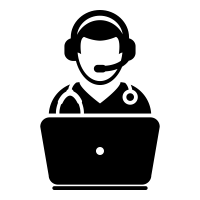As medical students, we are blessed with the privilege of being at the bedside and caring for patients. In the past few months, the COVID-19 outbreak has completely changed the way in which medical education has been delivered.
As we have all been at home, with tea and textbook in hand, we have tried to learn about medicine in this new classroom. I have spent time studying internal medicine and toxicology, and I have come to the realization that while reading is important for education, the patient is still the ultimate teacher. I relished studying toxidromes and presentations, but without being able to see them—without being able to talk to the patient, and see the work up—the lessons can feel ephemeral. Online discourse with attendings and work with our instructors has been wonderful, and improvement of the delivery of medical education is on an upwards trajectory. The most beneficial times were when we were able to sit with our attendings online and just discuss medicine. However, the lack of clinical learning is not necessarily a bad thing.
With the additional time at home, I have felt more able to invest in myself and improve myself. I have learned new skills, become more physically active, and most importantly of all, entered an online world of communication. I have spent much time recently speaking with people online about their experiences with medicine. There was no posturing, no attempts to hide hurts and pains behind an expression. What I realized when I entered these new spaces was that there is so much more we can do for people. When I talked to people online in these communities, I saw they were filled with people who are struggling in their own way and feeling lost. They want to be better, they want to grow and be healthy, but they are left at the wayside. The depth of the pain, the rawness of the tears and the stress is something difficult to articulate, even in a paper. From a logical standpoint, these feelings are obvious, but when we try to reach out to our patients and serve them, what good is a physician who fails to listen?
That act of listening—the first true medicine—is a skill that we should cherish. For through all the obfuscation of healthcare through political maneuvering and hospital overhead, the light of a kind smile should be the beacon for our patients to know that we are here. The power of the medical student is being able to be slow, to take time, and to hear what the patient is saying, and our education now and into residency should focus on providing more opportunities to slow down and listen. We need to advocate for our patients in this slow way, but also learn to be efficient. Hours in the hospital are important, but a good physician is not an observer in life but an actor upon the stage. Going into the future, allowing medical students more time to self-reflect and engage with communities will improve and strengthen our ability to champion our patients.
Mohammad Khan is a fourth-year medical student in The University of Arizona College of Medicine – Phoenix, Class of 2021. He graduated from Arizona State University in 2014 with two bachelor's degrees in biochemistry and biology. He then worked as a teacher and completed a Master's in biomedical diagnostics in 2017. For fun, Mohammad (who also goes by Mokha) likes to practice at the archery range, work on calligraphy, game, and fountain pen writing, and read science fiction novels. He is interested in medicine with a focus on educating patients. -------------------------------------------------------------------------------------Zaid Saadeh is a member of the class of 2021 at UACOM-Phoenix pursuing a career in Diagnostic Radiology. His interests include global health and community service. He hopes to use this passion to support healthcare in underserved areas overseas, especially in a post-COVID world. Outside of medicine, he enjoys travel and exploring the natural beauty of Arizona.

